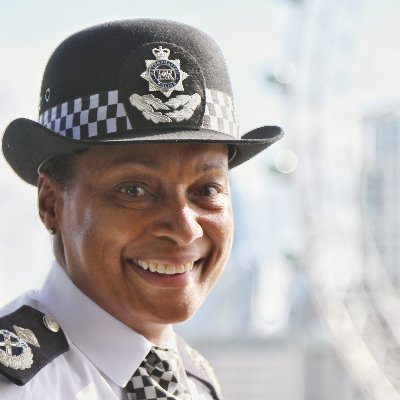 The Police Race Action Plan is the biggest coordinated effort ever across every police force in England and Wales to improve trust and confidence in policing among Black communities.
The Police Race Action Plan is the biggest coordinated effort ever across every police force in England and Wales to improve trust and confidence in policing among Black communities.
Every Chief Constable has signed up to support the plan and achieve its objectives, the first time there has been such a coordinated, unified response across policing to making the vital improvements envisaged under the plan.
Policing is determined to become an anti-racist organisation that actively roots out bias and discrimination from our ranks. Delivering the long term, institutional changes we want in things like culture, outcomes and behaviour will take time. But there has never been so much support, focus and determination to ensure policing is representative of and can be trusted by Black communities across the country.
I understand that people may be sceptical. The Scarman report, the Stephen Lawrence Inquiry, the Lammy review. There have been too many reviews, reports and enquiries over the years into the relationship between the police and Black communities.Now is the time for action, not just more words.Our plan has achieved a considerable amount since launching in May 2022.
This includes holding conversations with thousands of people about the plan, its work, what we want to achieve and how we can best do it.
A public survey received more than 5,000 responses, of which 10 per cent were from Black, Black British or mixed Black heritage respondents. A separate survey has gleaned feedback from more than 1,600 Black officers and staff currently working in policing, to get their invaluable views on our culture and what steps we can take to make policing more inclusive. Our Independent Scrutiny and Oversight Board (ISOB) has been established to oversee and scrutinise our work, holding our delivery of the plan to account and making recommendations and suggestions on the best ways for the plan to move forward.
A Community Reference Group has also been set up, with a network of independent people across the country coming together to advise and guide the plan and ensure what it is doing has the best chance of achieving community buy-in.
Acknowledging policing’s past experience and interaction with Black communities is a key part of our plan. We have made bespoke materials for forces to help them educate their staff about Black history and especially the history of  the Black community with the police, while a Black Heritage Advisory Group has been set up with the College of Policing to advise on policies and practices within policing. Changes have already been delivered to the way policing does its work. This is particularly true around data and ensuring ethnicity is recorded in areas it was not done previously. The ethnicity of those subject to traffic stops is now recorded by most UK police forces. This was a key recommendation of the inquiry following the death of Stephen Lawrence.
the Black community with the police, while a Black Heritage Advisory Group has been set up with the College of Policing to advise on policies and practices within policing. Changes have already been delivered to the way policing does its work. This is particularly true around data and ensuring ethnicity is recorded in areas it was not done previously. The ethnicity of those subject to traffic stops is now recorded by most UK police forces. This was a key recommendation of the inquiry following the death of Stephen Lawrence.
The plan commissioned independent research into the use of taser by police officers and has subsequently put in place actions to address disproportionality in how these powers are used. Similar work is underway to ensure the ethnicity of missing people is recorded more effectively and consistently. One of the key actions in our plan is to adopt an ‘understand any disparity, seek to explain it or build a case for potential reform’ approach to race disparities and develop a new national approach to help forces tackle race disparities in their use of powers, including stop and search.
From April, forces will be publishing an ethnicity pay gap and put action plans in place to address gaps in pay. Some chief constables are now being mentored by mentors from the Black community, as part of the Elevate programme being run through the Police Race Action Plan. The plan has also sparked a conversation about institutional racism in policing. Several chief constables, including National Police Chiefs’ Council (NPCC) chairman Chief Constable Gavin Stephens, have said they believe policing is institutionally racist. While it is for individual Chief Constables to make their own assessment, there is a growing number of the most senior police officers acknowledging that discrimination and bias still exists in policing – and that we must all work together to stamp it out.
West Midlands Police is doing its own great work as part of the plan, more details of which can be viewed on the force’s website. While change is happening, we know we have a long way to go. For decades, progress has not gone far or fast enough in policing. Put simply, if we get this right, policing will be better and become much more operationally effective.
We want Black victims of domestic abuse to be confident in coming forward. We want Black boys and girls subject to exploitation to be confident in coming forward. We want Black communities to look at policing and feel that we are representative of their community, we ‘get it’ and we understand their concerns. Sadly, for too many people at the moment, this is not the case. We are determined to change that.
You can help us make the change.
More details on the plan are available via the NPCC website, where you can read the plan in full.
You can submit feedback on the plan and what you would like to see it focus on by filling this form or by sending us an email via This email address is being protected from spambots. You need JavaScript enabled to view it.
T/Deputy Assistant Commissioner Dr Alison Heydari
Programme Director, Police Race Action Plan